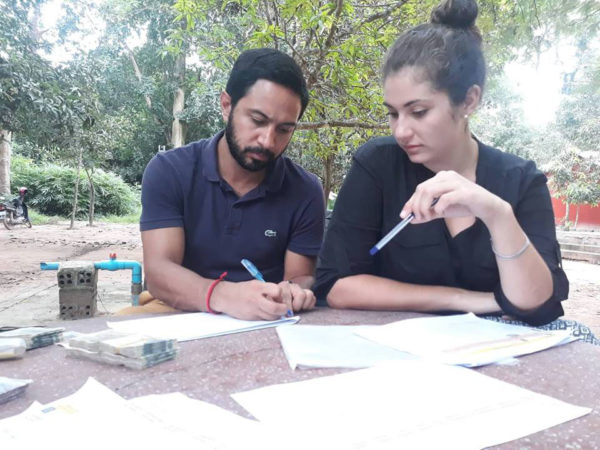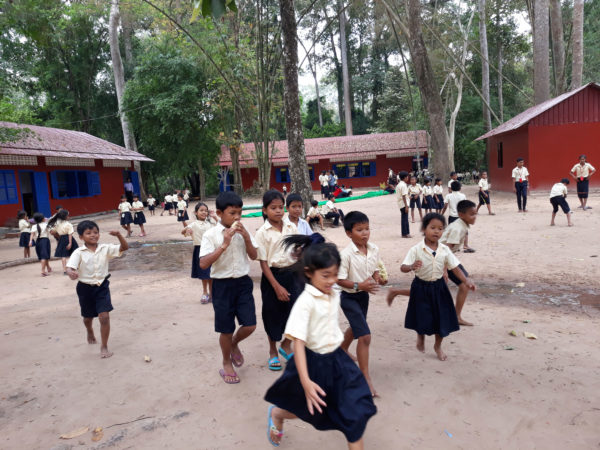
Nous souhaitons que chaque élève fasse l’objet d’un suivi personnalisé. Pour cela, les cours de soutien seront remaniés. Ils seront désormais faits en petits groupes pour permettre à notre enseignante, Sophany, de pouvoir les suivre individuellement. Ils seront pédagogiquement différents des cours en classe entière et s’adapteront aux méthodes d’apprentissage convenant le mieux à chaque enfant. C’est un vrai travail de coordination entre la professeure de soutien et les professeurs de grade qui sera mis en place. Cela permettra aux enfants plus facilement et aux professeurs de choisir la bonne méthode à utiliser en fonction de l’élève.

La construction de la bibliothèque cette année permet aussi de mettre en place, à partir de la rentrée, des cours de bibliothèque pour tous les grades. Les grades les plus grands auront également accès à des cours d’informatique. Ce sera l’occasion pour eux d’apprendre non seulement à utiliser un ordinateur mais aussi de renforcer les apprentissages des matières traditionnelles différemment. Nous renforcerons les cours d’art et de danse Apsara, optionnels jusqu’alors, en en donnant accès à tous les enfants toute l’année. Ces cours sont non seulement un moyen pour les enfants de découvrir tout un pan de leur culture, mais aussi de développer leur créativité, leur curiosité, leur capacité à exprimer leurs pensées et à créer ensemble avec leurs camarades.
Nous souhaitons renforcer encore le lien avec les familles de nos élèves pour leur donner une idée concrète de l’importance de scolariser leurs enfants. C’est essentiel car la plupart de nos parents d’élèves n’ont pas été à l’école. Cela passe bien sûr par beaucoup de communication, faite avec l’aide précieuse de notre assistante sociale, mais aussi par l’organisation d’événements festifs et positifs dans l’enceinte de l’école, où l’investissement des enfants dans leur scolarité est valorisé.
This school year, Bayon primary school will go through significant change. After completing some renovation work, we are now looking at the way the school is organised and the teachers’ practices, based on Anaïs and Rodrigo’s recommendations.
One of their key recommendations is the appointment of a full-time headmaster, so that the school can be continually supervised throughout the week. As a result, we hired Dy Phorn as the new headmaster in September. He will be at the school with the students permanently and will be able to supervise and support the teachers. One of his missions will be to develop a new, clear and rigorous organization of the school life. A general supervisor has also been appointed to ensure the safety of children and maintenance in the school.
We want each student to be personally monitored. For this, support courses will be revised – they will now be done in small groups to allow our teacher Sophany to follow them individually. They will be pedagogically different from the whole class and will adapt to the best learning methods for each child. This will require a great coordination between the support professor and the teachers in each grade and facilitate the choice of the right method for each student.
The children will also have access to new courses, thanks to a rationalisation of the schedule, which will be closer to the requirements of the Cambodian Ministry of Education. This will also allow more time for the teachers and the headmaster to work together. The teachers will be able to better prepare their lessons, better understand the students and their needs, and plan training and discussion times to share good practices. This collaborative environment will be beneficial for our teachers as well as for our students.

The establishment of a library this year also opens the opportunity to integrate library sessions in all grades’ schedules. Furthermore, computing classes will be provided to the students in the higher grades. Students will be able to learn how to use a computer, but also strengthen their learning of all subjects in an innovative way. Whilst it has been optional until now, the Apsara art and dance classes will be taught to all children, all year long. These courses aren’t only a way for children to learn more about their culture, but they also help them develop their creativity, their curiosity, and their ability to express their thoughts and to create together with their classmates.
Many projects are underway to achieve this reorganization of the primary school. We want to continue strengthening the school’s health program, informing children about first aid rules, implementing vaccination follow-up, and work closely with other medical NGOs to provide them with the dental and ocular cares they need.
We want to further strengthen our relationships with our students’ families, to raise awareness of the importance of sending their children to school. This is essential, because most students’ parents have never been to school. Of course, this requires a strong communication work, with the help of our social worker, and we will also organise positive events at the school, where children can demonstrate their involvement in education.
Even though implementing change in the education sector takes time, most of these projects will be completed during the coming school year. All this wouldn’t be possible without all the support we receive and the involvement of the NGO’s teams, so we’d like to say a huge thank you!

